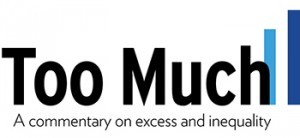Gar Alperovitz's Blog, page 4
August 30, 2016
An in-depth exploration of my vision for a Pluralist Commonwealth
In this seminar, I spoke with a small group of activists, researchers, and change-makers from around the world on the key design principles of a just society and my vision for a Pluralist Commonwealth. I hope you enjoy this in-depth discussion and and perhaps share it with others as a resource to begin to uncover and create what’s next.
The post An in-depth exploration of my vision for a Pluralist Commonwealth appeared first on Gar Alperovitz.
August 22, 2016
Talk Nation Radio: Gar Alperovitz on Ending War
On August 16, 2016, Democracy Collaborative co-founder Gar Alperovitz joined Talk Nation Radio host David Swanson on his show, “Let’s Try Democracy” (Syndicated by Pacifica Network). Gar comments on the current state of nuclear armament, and what it would take to end all world wars:
Gar Alperovitz: I think things are in dire straits. We’ve been very, very, very lucky so far that someone has not triggered use of these [nuclear] weapons. We’re skating on thin ice. We have yet to find a president who is willing to make this a top priority…
Hear the full radio show here.
The post Talk Nation Radio: Gar Alperovitz on Ending War appeared first on Gar Alperovitz.
May 19, 2016
Obama’s Visit Raises Ghosts of Hiroshima
By David E. Sanger. Originally published in The New York Times on May 10, 2016.
 Gar Alperovitz has been a leader of the conversation about the atrocities of Hiroshima and Nagasaki for decades. Here, he is cited by New York Times journalist David Sanger for his evidence that dropping the bomb was an unnecessary part of the Japanese surrender and the end of World War II:
Gar Alperovitz has been a leader of the conversation about the atrocities of Hiroshima and Nagasaki for decades. Here, he is cited by New York Times journalist David Sanger for his evidence that dropping the bomb was an unnecessary part of the Japanese surrender and the end of World War II:
“The top American military leaders who fought World War II, much to the surprise of many who are not aware of the record, were quite clear that the atomic bomb was unnecessary, that Japan was on the verge of surrender, and — for many — that the destruction of large numbers of civilians was immoral,” Gar Alperovitz, a leader of the movement to revise the United States’ own historical accounting, wrote last year in The Nation…
Click here to read the full article in The New York Times
The post Obama’s Visit Raises Ghosts of Hiroshima appeared first on Gar Alperovitz.
April 21, 2016
What Comes After Capitalism? Upcoming Teach-Ins Can Show a Way Forward
 In this Op-Ed for truthout, published on April 21, 2016, Gar Alperovitz and Santa Barbara Teach-In Coordinator Ben Manski discuss the national historic Teach-Ins movement and how it’s playing out this Spring as a part of The Next System Project:
In this Op-Ed for truthout, published on April 21, 2016, Gar Alperovitz and Santa Barbara Teach-In Coordinator Ben Manski discuss the national historic Teach-Ins movement and how it’s playing out this Spring as a part of The Next System Project:
An extraordinary process of change is about to explode this month on campuses and in communities across the United States. Thousands of Americans are coming together in dozens of locations to take on the question of what kind of system should replace capitalism. The process is called the Next System Teach-Ins.
Teach-ins to address the fundamental question of how to move beyond capitalism will be taking place on campuses as well as in community centers and correctional facilities — most between Earth Day (April 22) and May Day (May 1), following kickoff events this month at the New School and the City University of New York (CUNY) system in New York City; and the University of Wisconsin at Madison. The largest teach-in is planned for the University of California, Santa Barbara, between April 26 and 28. Major sessions from that campus will be live-streamed into classrooms, house parties and workplaces across the world.
The idea that capitalism as a system may be coming to an end, that something new must ultimately be created, is no longer restricted to groups on the political left. Survey after survey has found millions of Americans embracing ideas far different from business as usual. A January 2016 poll of likely Democratic caucusgoers, even in a state like Iowa, found that 43 percent described themselves as “socialist” — a higher percentage than those who self-identified as “capitalist.” Eighty-four percent of Democratic voters under the age of 30 voted for the self-described “democratic socialist” candidate Bernie Sanders, and one-third of all Sanders supporters have told pollsters they will vote for the Green Party’s Jill Stein in the general election if Sanders is not the Democratic Party nominee.
Nor is the understanding that the current system is not the be-all and end-all of history restricted to progressives in general. Long before anti-capitalism found mass expression in the Sanders campaign, four years ago, in 2012, Klaus Schwab, chairman of the World Economic Forum — the annual gathering of corporate and financial leaders in Davos, Switzerland — declared: “Capitalism in its current form no longer fits the world around us.”
When the next crash comes, will we be ready to offer a clear, workable and compelling vision of how to reorganize society?
And three years ago, the Academy of Management, an august body of 29,000 business school professors and corporate advisers, met for their annual meeting in Orlando, Florida. The theme: “Capitalism in Question.” Some of the questions: What kind of economic system would a “better world” be built upon? “Would it be a capitalist one? If so, what kind of capitalism? If not, what are the alternatives?” Economist Thomas Piketty’s book on the inequality and instability endemic to capitalism was number one on both Amazon and the New York Times hardcover nonfiction list.
But what kind of system might one day transcend the traditional 20th-century models of corporate capitalism on the one hand, and state socialism on the other? And what can those who insist that the next system produce democracy, justice, equality, ecological sustainability and a culture of community do to build understanding of the kind of political and economic system and society that we want and need?
What can we do to move forward in a positive way? How do we engage the question, both practically and theoretically? How do we move beyond abstract rhetoric? These questions at the heart of the teach-ins matter to all of us, but they are particularly urgent to those born after the 1960s.
We’ve seen that urgency expressed repeatedly over the past five years, first with the immigrant rights mobilizations, then in the Wisconsin Uprising and Occupy Wall Street, next with the climate justice movement and Black Lives Matter, and today with the powerful generational justice politics expressed in the support for Bernie Sanders among millennials and Generation X. Generational politics are increasingly class politics.
Teach-ins as a strategy for helping catalyze serious change have been part and parcel of progressive change for more than five decades. Beginning in the mid-1960s with the teach-ins on the war in Vietnam and continuing on through the 1970s and 1980s with the use of teach-ins by the environmental, women’s, anti-apartheid and anti-nuclear movements, into the 1990s and 2000s with the Democracy Teach-Ins and Tent State Universities, and most recently with Occupy and Black Lives Matter, activists have periodically revived the tradition of campus teach-ins.
Teach-ins transform college and university campuses into political fora in which students, faculty and community members take collective responsibility for matters of local, national and global import. They usually involve large-scale gatherings combined with smaller, more intensive workshops. One thing that makes a teach-in different from a conference or an academic seminar is the teach-in’s focus on producing knowledge for use by participants as members of an organized, politicized campus community.
Another is the use of a “wall-to-wall” organizing approach in which every member of the community is challenged to engage in discussion and debate on the question at hand. The major waves of teach-ins of the past 50 years have gone beyond the committed choir to inspire large numbers of people to expand their sense of the necessary and the possible.
Each teach-in wave produced something powerful and new. The teach-ins on the Vietnam War greatly expanded the reach of the antiwar movement and deepened the questioning of long-held assumptions about the role of the United States in the world system. Earth Day 1970 helped launch the modern environmental movement. The teach-ins of the women’s liberation and out-of-apartheid movements transformed lives and built and expanded those movements throughout the 1970s and into the 1980s.
The Democracy Teach-Ins of the 1990s cohered, radicalized and mobilized the student anti-corporate and anti-sweatshop movements that fed into the 1999 shutdown of the World Trade Organization meetings in Seattle. The national wave of teach-ins on the Wisconsin Uprising churned movements across the country in the months prior to Occupy Wall Street, which in turn inspired its own teach-ins around the world. Similarly, Black Lives Matter inspired campus teach-ins, which then fed into mobilizing for the first National Blackout Day of boycott and protest.
Though colleges and universities are hardly the only places where the challenge is intensely felt, they are critical arenas for this debate. They have been in crisis since the 1990s. And the problems confronting students and would-be students, as well as faculty and staff, are worsening most places one turns. The University of Wisconsin system has eviscerated faculty tenure, and prominent professors are fleeing the state. Chicago State University — an institution that disproportionately serves low-income students and students of color — has closed its doors for lack of state funding. Faculty and graduate student unions have been compelled to authorize strikes in the California State University and CUNY systems. And everywhere the burden of student debt, combined with precarious labor markets, has produced two generations of Americans indentured to the failings of modern capitalism.
All of this is the result of over 30 years of deep cuts in public funding for public higher education (as a proportion of overall costs), huge increases in student tuition and student debt to make up for those cuts, and the concurrent and related corporatization of university research and services. This past year’s campus mobilizations — from the Million Student March, to the mass protests in support of Black students at the University of Missouri, to the new campaign by the United States Student Association for free higher education and student debt forgiveness — show an understanding that the crisis in higher education is part of the broader systemic crisis.
The good news is that the Next System Teach-Ins are only beginning and are only one part of the important work of many hands in preparing the way for a new society. From the New Economy Coalition to the US Solidarity Economy Network to the upcoming 2017 Democracy Convention to the Black Liberation Collective, the constitutional reform efforts of Move to Amend and more, a movement for economic and political democracy is underway in the United States.
We’ve seen state socialism and know it’s not a workable alternative. We’ve experienced corporate capitalism; it has proven itself inequitable, unstable and ultimately unsustainable. Over the coming decades, and especially when the next crash comes, will we be ready to offer a clear, workable and compelling vision of how to reorganize society?
The post What Comes After Capitalism? Upcoming Teach-Ins Can Show a Way Forward appeared first on Gar Alperovitz.
March 15, 2016
A response to Sam Gindin
I was surprised to read Sam Gindin’s characterization of my views on worker-ownership and cooperatives in his recent article “Chasing Utopia.” I agree with Wolff and Wright that worker-owned and self-directed firms make sense in a number of areas—and with Gindin’s judgment that “in general, factory takeovers and co-ops should be enthusiastically supported.” However, they are hardly at the center of my argument for a new socialism.
Gindin states that “what’s missing in so much recent analysis is a sober, comradely investigation of their strengths and weaknesses so that, over and above solidarity, we can learn from them rather than add to existing illusions—thereby gaining a better appreciation of what transforming society would really require.” I fully agree. Indeed, I debated Richard Wolff on the need to go beyond a narrow worker-ownership position during a major session of the Left Forum in 2014. I also discussed the same issues at length with another advocate of a largely worker self-managed market system, David Schweickart in a 2011 gathering. Again, though I think the Mondragón cooperatives are extremely important, they also leave many important questions unanswered (as outlined in a 2013 article when Fagor, one of the most prominent cooperatives in the network failed.)
A major problem is that operating in a market system worker cooperatives are subject to many of the problems of any enterprise operating in competition with others: They must externalize and reduce costs when under pressure, which can lead to environmental despoliation and, as we see with many coops today, the use of wage labor. Worker-ownership can also lead to unequal outcomes: the garbage worker-owners, for instance, are likely to have different incomes than the high tech worker-owners, and both groups are likely to have different levels of power in protecting those incomes.
Broadly, any serious next system model must almost certainly involve a mix of democratic ownership forms, including: small scale cooperatives, mixed geographic ownership models (some—at the local level—joint venture community/worker coops, some neighborhood, some municipal); state ownership; regional ownership and national ownership. Worker management of larger public forms is also an important element of a solution. In particular (as Gindin mentions in passing) I have also written at length about the importance of national and regional public enterprise in any serious model—in multiple pieces in the Nation (see here and here) and the New York Times (here and here), as well as more extensively in America Beyond Capitalism and in several of chapters of What Then Must We Do? (where some of the complexities of the worker/community challenge are also emphasized in an Afterword.)
The ownership question is of course, only one piece of the puzzle. The relationship between planning and markets, for instance, also needs to be fundamentally reshaped. This is not the place to attempt an extended discussion. Enough has been said to suggest, however, that contrary to Gindin, while I think worker coops can play an important role in the building of a socialist system, other public forms are critical at all levels.
On the specific question of ESOPs: I agree with Gindin that many—particularly those which involve a minority share of the company in worker’s hands—can have the effect of enforcing corporate discipline. It is unclear, however, that this is the case in the estimated 30-40% of ESOPs which are 100% worker owned; nor among those that have experimented simultaneously with unions. The notion of workers actually capturing ownership and control evidenced in the best cases also serves to introduce the simple idea of democratic ownership in a society that, unlike many European societies, has a very limited understanding of basic democratized ownership principles.
On the matter of historical change: I do not believe in an oversimplified theory of historical change. At this point in time a critical requirement is the introduction of basic socialist ideas, along with demonstrations that it is possible, quite simply, to do this in the United States, in principle and in politics, as well as in institutions that embody the principle of democratic ownership. What may happen at subsequent stages of development is a different matter, especially if sufficient political work and institutional experimentation and development is done over the coming period. My book, What Then Must We Do? suggests several possible scenarios, including that we may ultimately be forced to confront some American equivalent of fascism, as Chile did. Even this possibility, however, does not remove the need, now, of laying down foundations in theory, and in tangible practical experiments, upon which to build forward over time.
More on these various points can be found at www.pluralistcommonwealth.org and www.garalperovitz.com. See also this extended Real News discussion: http://therealnews.com/t2/index.php?option=com_content&task=view&id=31&jumival=11382
The post A response to Sam Gindin appeared first on Gar Alperovitz.
February 25, 2016
Democracy and Decentralization: UK Labour Leaders Reframe Socialism for the 21st Century
 In this op-ed for Truthout, originally published on February 25, 2016, Democracy Collaborative co-founder Gar Alperovitz and Next System Project director Joe Guinan discuss the propensity for true socialism in the United States, given the discussions swirling around the 2016 presidential candidates:
In this op-ed for Truthout, originally published on February 25, 2016, Democracy Collaborative co-founder Gar Alperovitz and Next System Project director Joe Guinan discuss the propensity for true socialism in the United States, given the discussions swirling around the 2016 presidential candidates:
Bernie Sanders has made an unprecedented and extraordinary contribution to the US political landscape this election cycle. Whatever the outcome of the primaries, a whole generation has learned that talking about socialism, explicitly and proudly, is no longer as politically radioactive as once supposed. But can we not expect more from our economic populism than just knitting back together a frayed social safety net, kick-starting the engines of Keynesian demand with ecologically appropriate infrastructure and imposing some long overdue reforms on our largest financial institutions? Might the United States not be ready for a socialism that actually takes the question of “who owns the economy” seriously?
Though perhaps tactically understandable, given his own previous efforts, it’s a little surprising that Sanders has not made ownership (and new forms of ownership) more of a theme in his campaign. “I don’t believe the government should own the means of production,” he emphasized in his major speech on democratic socialism in November 2015, even though elsewhere he has given vociferous support for expanding the scope of the US Postal Service into retail banking. Community development advocates are scratching their heads, wondering why Sanders’ longtime support at the municipal and state level for transformative ownership strategies – employee ownership, community land trusts, cooperative low-income housing – haven’t shown up on the stump. Hillary Clinton’s tepid profit-sharing plan, where businesses could claim a tax credit for 15 percent of the amount of profit they share with their workers, and which grows out of Larry Summers’ “inclusive capitalism”framework, at least opens the door to a (very) weak form of ownership.
A look at what’s brewing on the other side of the Atlantic gives us some reason to dream a little bigger about what might be possible and also politically viable here, especially given the new direction socialist thought is taking all around the world.
Jeremy Corbyn’s insurgent, grassroots-powered win that took the British Labour Party back from neoliberal centrists shares a lot with Sanders’ presidential primary campaign. However, Corbyn has tackled the ownership question head-on, coming out strong for a modern approach to public ownership as a basic principle to defend and fight for: “After a generation of forced privatisation and outsourcing of public services, the evidence has built up that handing services over to private companies routinely delivers poorer quality, higher cost, worse terms and conditions for the workforce, less transparency and less say for the public.”
His vision of public ownership, however, is quite new; it has more to do with Chattanooga’s experiments in municipal broadband then it does with the monolithic centralized state bureaucracies of mid-20th-century Britain. Corbyn believes “local councils [should] have the freedom to develop their local economies and communities and to become the public entrepreneurs of the 21st century and to directly provide cutting edge public services and utilities in the economy of the future.”
Looking past Corbyn to his economic team – and in particular, the direction being articulated by his shadow chancellor, John McDonnell – we see something transformative: not just a strong pushback against the corporate economy, but the outlines of “a new, positive economic alternative for Labour … the new economics.” Part of this involves revitalizing the long cooperative tradition in the UK, which stretches back to the original Rochdale Pioneers, who inaugurated the modern consumer cooperatives in 1844. “In an uncertain world where a laissez faire market approach continues to fail, co-operation is an idea whose time has come again,” McDonnell said.
In his approach to bringing more democracy into the workplace, McDonnell picks up on developments that US-based co-op developers have also been focusing on, such as converting existing businesses to achieve increased worker ownership. For example, McDonnell said that the law should “[offer] employees first rights on buying out a company or plant that is being dissolved, sold, or floated on the stock exchange.”
McDonnell also highlights the growing trend in the US and the UK toward a model that uses the power of municipal government, together with the procurement resources of large nonprofit and public institutions, to build frameworks for inclusive, locally anchored economic development:
Preston, inspired by the example of Cleveland, Ohio, has developed an extensive programme of work. Preston was one of the councils facing the very sharpest cuts to its funding out of any in the country. But they are responding creatively.
They have got major local employers and buyers – so-called anchor institutions, like the University of Central Lancashire – to drive through a local programme of economic transformation. By changing their procurement policies, these anchor institutions were able to drive up spending locally.
They’re looking to shift a proportion of the joint council’s £5.5bn pension fund to focus on local businesses, keeping the money circulating in Preston.
And the council is actively seeking opportunities to create local co-operatives as a part of local business succession, working with the local Chamber of Commerce. The aim is to sustain high quality local employment, by giving the chance for workers to keep a business in local hands.
Crucially though, for McDonnell, the task is bigger than just creating a few more worker cooperatives; the project for Labour in the 21st century is to articulate “how we can change our economy to suit our society, rather than changing society to suit our economy … We need to go much further than simply offering a defence of what we already have.” And such a vision should not just fall back on old models of centralized, technocratic state ownership, with all their well-documented flaws:
Nor can we simply demand top-down nationalisation as a panacea. The old, Morrisonian model of nationalisation centralised too much power in a few hands in Whitehall. It had much in common with the new model of multinational corporations, in which power is centralised in a few hands in Silicon Valley, or the City of London. It won’t work in a world in which technological change is providing opportunities to decentralise power.
Ultimately, what is at stake for McDonnell is nothing less than a real, rigorous conversation about a next system, one that rises above the rhetoric common on both the left and right, and that rigorously explores the kind of economic institutions and infrastructure we want to build, beyond both corporate capitalism and state socialism:
Friedrich von Hayek, who taught for many years at LSE, is politically somewhat distant from myself, it’s fair to say. But he raised a profound point about how information operates in a society, when he noted that centralised bureaucracies can be overwhelmed by the information processing demands of complex, modern societies. His preferred solution, of allowing the market to act as an information processor, was equally unviable.
Markets can be crude information processors at best, as the crash of 2008 showed. […] We should look, instead, to how different forms of organisation can operate in the economy – not just the capitalist firm, or the nationalised industry, but many different ways of organising ownership and production. We need a far more sophisticated argument about ownership that does not just fall into the caricature of either pure privatisation, or pure state control.
If Jeremy Corbyn and his team – which now includes Joseph Stiglitz, Thomas Piketty and Mariana Mazzucato as economic advisers – continue to bring this kind of thinking into the national political conversation in the UK, it’s possible that such ideas will start to gain more widespread voter support and implementation. Democratic socialists in the US should pay close attention.
Copyright, Truthout. May not be reprinted without permission.
The post Democracy and Decentralization: UK Labour Leaders Reframe Socialism for the 21st Century appeared first on Gar Alperovitz.
February 22, 2016
Do We Really Need a Billionaire Class? Gar Alperovitz on inequality and excess
 The Institute for Policy Studies’ publication Too Much focuses on inequality and excess. In this interview originally published on February 21, 2016, Too Much editor Sam Pizzigati speaks with Democracy Collaborative co-founder and Next System Project co-chair Gar Alperovitz about his “long-haul perspective on how we can go about shearing inequality down to democratic size:”
The Institute for Policy Studies’ publication Too Much focuses on inequality and excess. In this interview originally published on February 21, 2016, Too Much editor Sam Pizzigati speaks with Democracy Collaborative co-founder and Next System Project co-chair Gar Alperovitz about his “long-haul perspective on how we can go about shearing inequality down to democratic size:”
Too Much: You see capital — who gets to own it, to benefit from it, and derive political power from it — as a key to both understanding and ending our staggering levels of contemporary. What do you mean by capital?
Alperovitz: In the formulation I use, capital amounts simply to wealth ownership of any kind, ownership that can be translated into power. You can sell it to get income. You can hire people with it. It’s another word for wealth ownership.
Too Much: We’ve become so unequal, you’ve also noted, that we’ll never become significantly more equal unless we have a fundamental shift in who controls capital, in who owns wealth. A shift to what?
Alperovitz: Wealth brings power, political power, institutional power. Wealth on its own gives people the capacity, as a friend of mine likes to say, to “rent” politicians and control the political process. Wealth gives the wealthy access — access to political levers that alter the way the economy works.
Wealth gives the wealthy the capacity to ‘rent’ politicians and control the political process.
In all the advanced countries, labor organizations used to provide a counterbalance to this wealth. On the shop floor and in the political system, unions directly challenged capital on wages and the distribution of income.
But in the United States we’ve always had a much weaker labor movement than most other advanced capitalist nations, and today our labor counterweight is disappearing. Increasingly, we have no institutional counter to the political power of capital.
Many activists today think that building a movement will solve this problem. We obviously need a movement. But at the heart of the movement that helped make America more equal in the middle of the 20th century, we also had an institution, labor unions.
Unless you can build both institutions and a political movement, you won’t have the power and wherewithal to really challenge capital.
The post Do We Really Need a Billionaire Class? Gar Alperovitz on inequality and excess appeared first on Gar Alperovitz.
January 5, 2016
Gar Alperovitz on “What’s Next with Peter Buffet”
Originally published on December 26, 2015 on Radio Woodstock 100.1 FM.
 The Democracy Collaborative co-founder Gar Alperovitz joins Peter Buffet on Radio Woodstock 100.1 for his weekly radio show, What’s Next With Peter Buffet. Buffet interviews Alperovitz on systemic change, Alperovitz’ speech at the SOCAP 2015 conference, youth movements from the 1960s’ “McCarthy era” to the present, and more.
The Democracy Collaborative co-founder Gar Alperovitz joins Peter Buffet on Radio Woodstock 100.1 for his weekly radio show, What’s Next With Peter Buffet. Buffet interviews Alperovitz on systemic change, Alperovitz’ speech at the SOCAP 2015 conference, youth movements from the 1960s’ “McCarthy era” to the present, and more.
Listen to the full broadcast here.
The post Gar Alperovitz on “What’s Next with Peter Buffet” appeared first on Gar Alperovitz.
December 17, 2015
Gar Alperovitz speaks on “Standing Room Only” broadcast
Originally posted on WFHB/Firehouse Broadcasting on December 16, 2015.
 On December 4, 2015, political economist, activist and author Gar Alperovitz discussed redesigning our economic future as part of Indiana University’s Fall 2015 Themester programming. Alperovitz challenged his listeners to consider ways in which communities might help to transform the current system of wealth and political power to benefit more of society than just an elite few. The event begins with an introduction by Ryan Conway of IU’s Center for Sustainable Living.
On December 4, 2015, political economist, activist and author Gar Alperovitz discussed redesigning our economic future as part of Indiana University’s Fall 2015 Themester programming. Alperovitz challenged his listeners to consider ways in which communities might help to transform the current system of wealth and political power to benefit more of society than just an elite few. The event begins with an introduction by Ryan Conway of IU’s Center for Sustainable Living.
Click here to listen to the full broadcast.
The post Gar Alperovitz speaks on “Standing Room Only” broadcast appeared first on Gar Alperovitz.
October 29, 2015
Sanders’ strength? Millennials back socialism
This morning, I spoke with Dorian Warren on MSNBC’s “Nerding Out” about the meaning of “democratic socialism” amidst presidential election fervor, and the possibility for a next system through a global political and historical lens. I joined Joseph Schwartz to dissect Senator Bernie Sanders’ plan to extend democracy from its political sphere into an economic sphere… Watch the full interview.
The post Sanders’ strength? Millennials back socialism appeared first on Gar Alperovitz.




